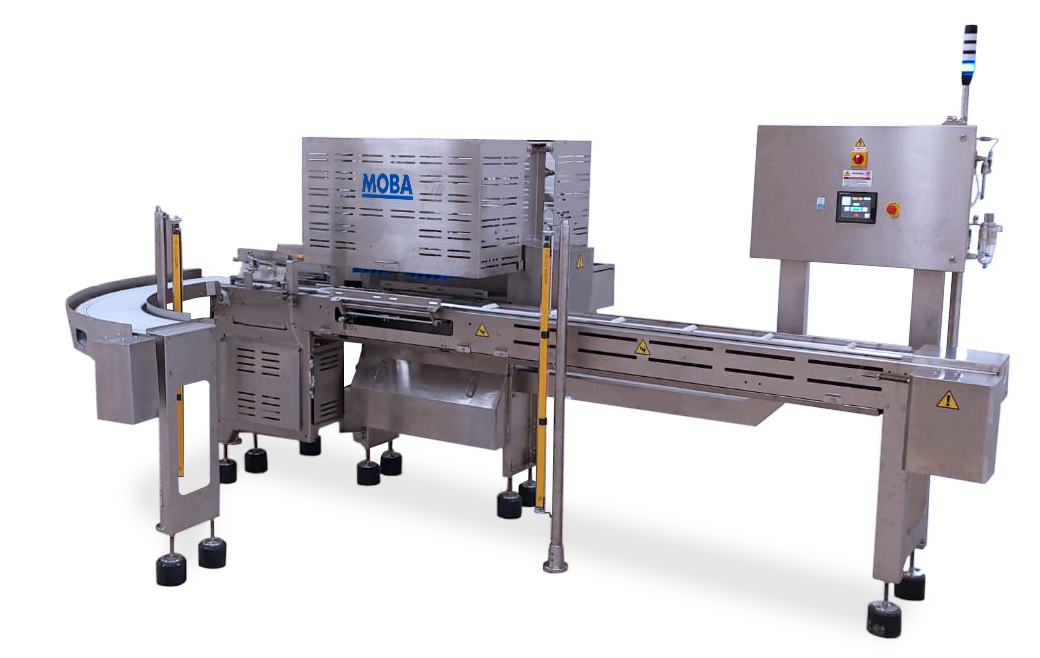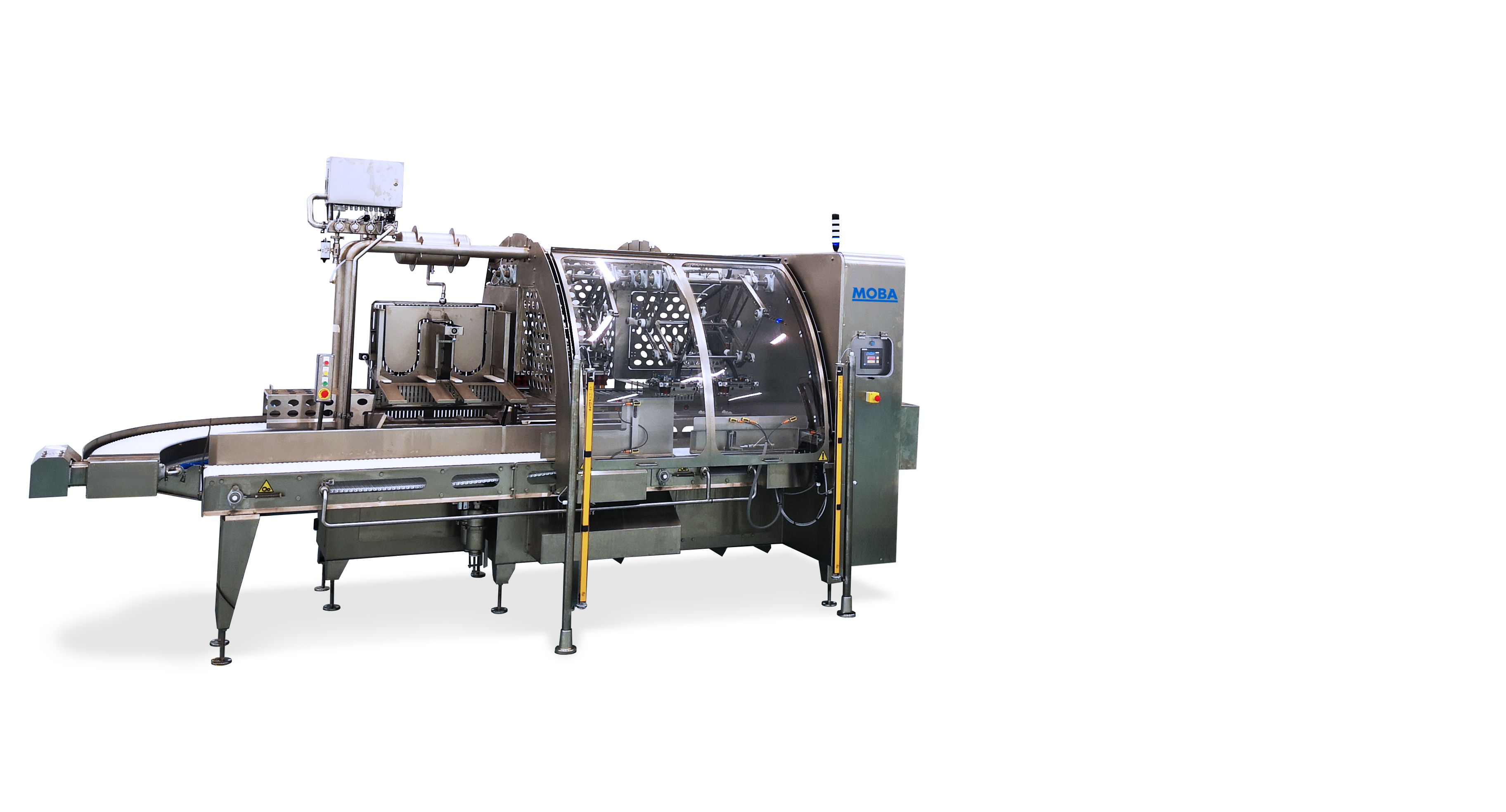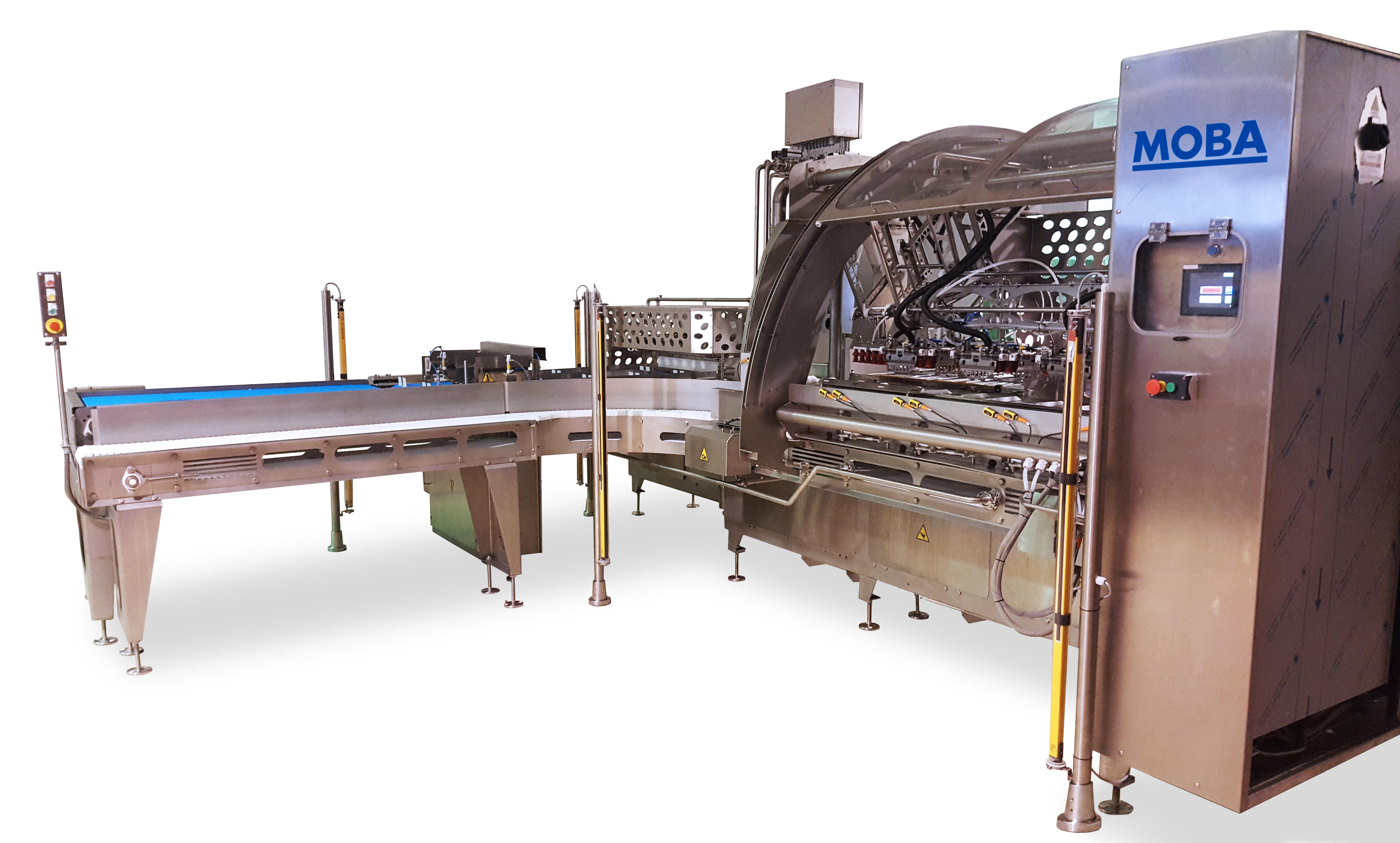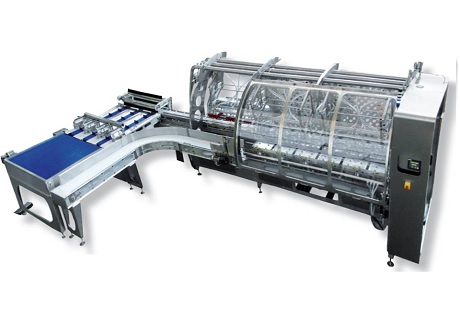The entire surface of the eggshell is scanned for any cracks, from big to very small. With information about the size and location of each crack, the operator can tune the system to his demands. The Moba crack detector can be added to Prima2000, Moba2500 and Omnia egg graders.
Crack Detection
Eggs are scanned by means of an acoustical system in a very accurate way. The entire surface of the eggshell is scanned for any cracks, from big to very small.
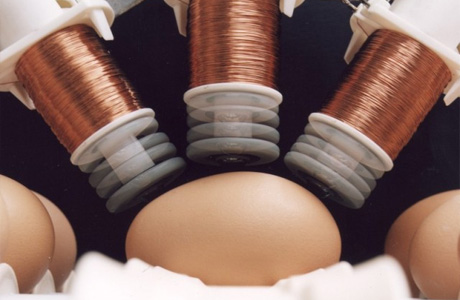
Product Information
Specifications
Downloads
Videos
Related solutions

